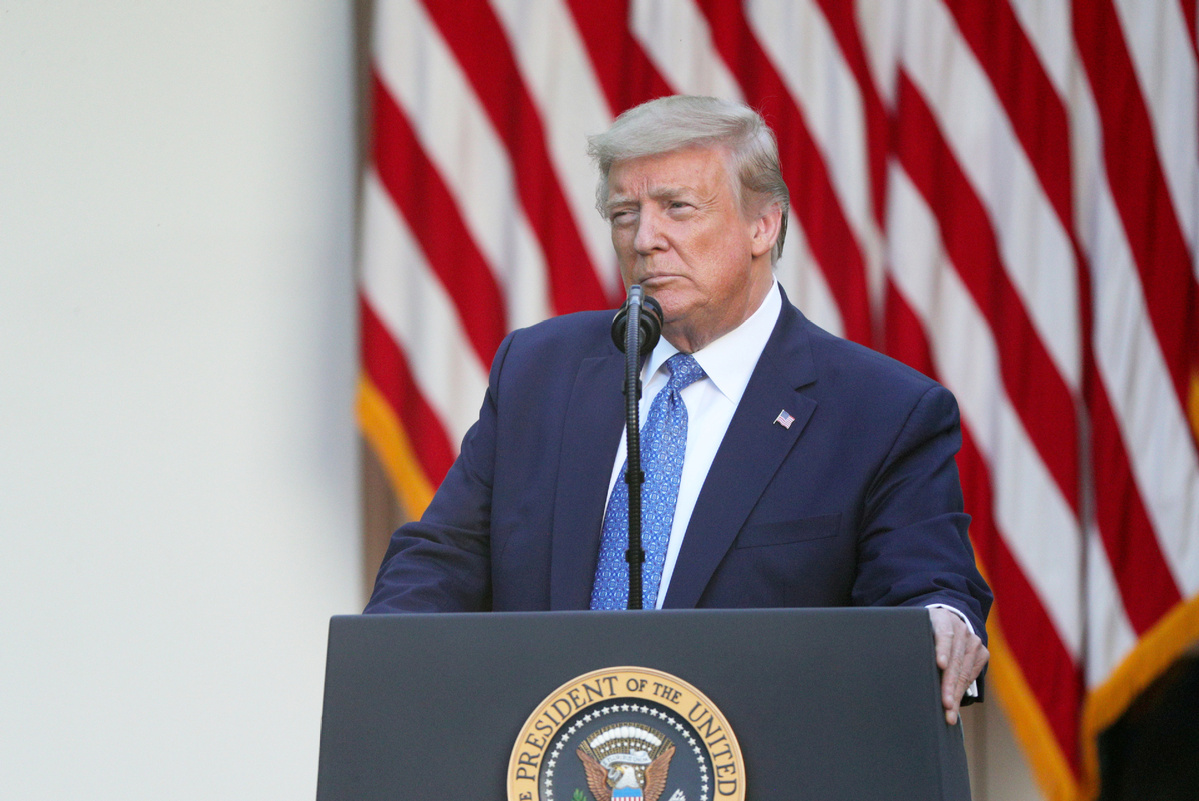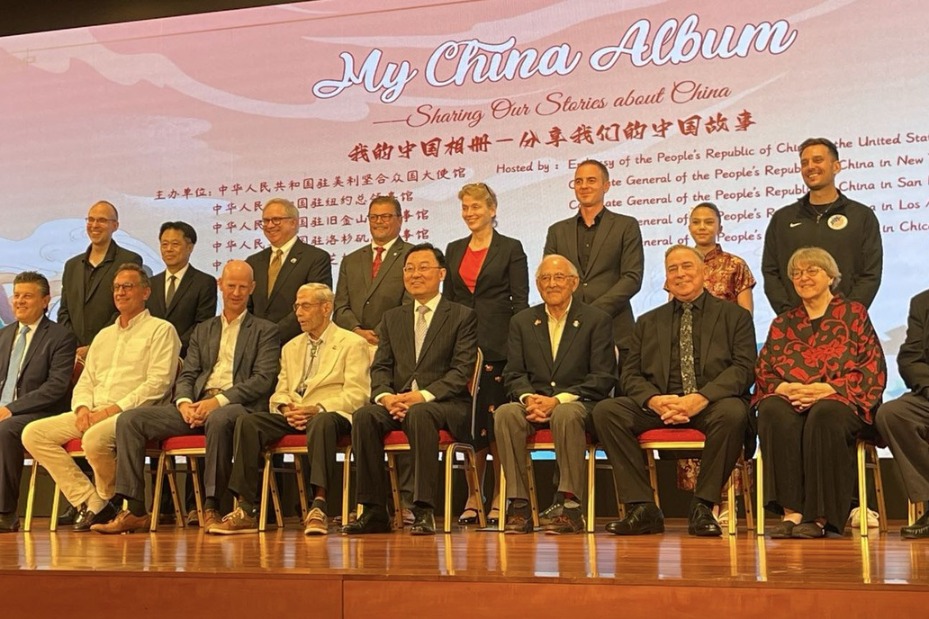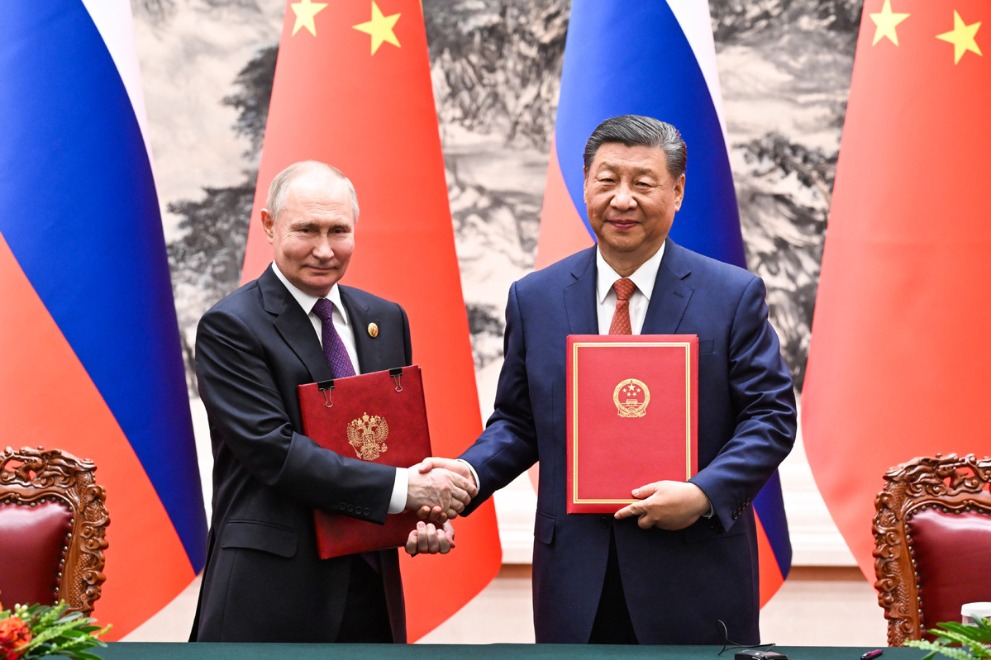Trump extends visa freeze for foreign workers
China Daily Global | Updated: 2020-06-24 10:24

With clamp lasting all year, experts warn of impact on US tech industry
US President Donald Trump on Monday signed an executive order to suspend the issuance of certain temporary worker visas through the end of 2020, a move that critics said would hurt the country's technology industry.
Trump's latest effort to crack down on immigration follows a measure in April to temporarily suspend immigration to the US, which he said was aimed at protecting US jobs affected by the coronavirus pandemic.
The new restrictions will prevent about 525,000 people from entering the United States between now and the end of the year, including 170,000 green-card holders who have been barred from coming to the country since April, according to a Wall Street Journal report, citing a senior administration official.
The Trump administration will grant exemptions for healthcare workers focusing on treating and researching COVID-19 as well as those working in the food supply chain, including seafood and food packaging, said the report.
Trump "is going to prioritise those workers who are offered the highest wages", as an indicator that they can add more value to the US economy, the official said.
"It will eliminate competition with Americans... in these industries at the entry level, and will do more to get the best and the brightest."
The new order extends his earlier ban through Dec 30 and expands it by imposing restrictions on a variety of work visas, including the categories H-1B, H-2B, H-4, L-1 and certain J-1 visas. Around 300,000 J-1 visa recipients enter the US every year, according to the American Immigration Council.
H-1B visas are designed for highly skilled workers, particularly in the tech industry. It is the largest visa program of those included in Monday's order.
"Immigration is essential to the success of America's innovation economy. In Silicon Valley, nearly 60 percent of STEM(science, technology, engineering and math) workers with a bachelor's degree or higher are foreign-born," said Peter Leroe-Munoz, general counsel and vice-president of tech and innovation policy at the Silicon Valley Leadership Group.
The ban impedes companies, universities and research institutions from attracting and retaining top global talent, said Leroe-Munoz, whose organization represents nearly 400 Silicon Valley firms.
The initial order was strongly opposed by those in the tech industry, claiming it would harm their efforts to recruit for positions that do not have a strong applicant pool among US citizens.
In the short term, the expanded visa restrictions will make it harder for Silicon Valley companies to fill tech positions that were vacant before the coronavirus pandemic, said Leroe-Munoz. "In the long term, tech companies in the region will be faced with reduced opportunities for innovation, as smart, hardworking immigrants relocate to other countries and compete against American businesses."
The Trump administration has also increased the denial rate for H-1B visas to a record high. Denials more than tripled to 15.2 percent in 2019 from 4.3 percent in 2015.
Other types of jobs affected by Monday's order include H-4 visas given to spouses of H-1B visa holders; H-2B visas used by seasonal workers, such as in the construction and hospitality industries; L-1 visas for executives who work for large corporations; and J-1 visas for academic and cultural purposes.
Political reasons
Immigration advocates criticized Trump for targeting immigrants for domestic political reasons.
"There has been a steady effort by the Trump administration to completely shut down immigration to the United States for the past three years. It is no surprise they are using the coronavirus as a pretext to advance this agenda," said Beth Werlin, executive director of the American Immigration Council, following the initial order in April.
Google Chief Executive Officer Sundar Pichai-whose company has been a leading beneficiary of the H1-B visa system-said he was disappointed by the announcement.
"Immigration has contributed immensely to America's economic success, making it a global leader in tech," he wrote on Twitter.
Congresswoman Judy Chu, a California Democrat, said immigrants are essential to the US, particularly during a health crisis.
"Immigrants make up 28 percent of doctors and surgeons in the US and 24 percent of nurses and home aides," she said. "So it's obvious that immigrants are so vital to this nation and to our recovery."
Layoffs caused by the pandemic in the US passed 45.7 million last week, and although many jobs will come back as the country reopens, there are worries that some have been irrevocably lost by the heavy financial impact on businesses and local governments.
Lia Zhu in San Francisco, agencies and Xinhua contributed to this story.
























